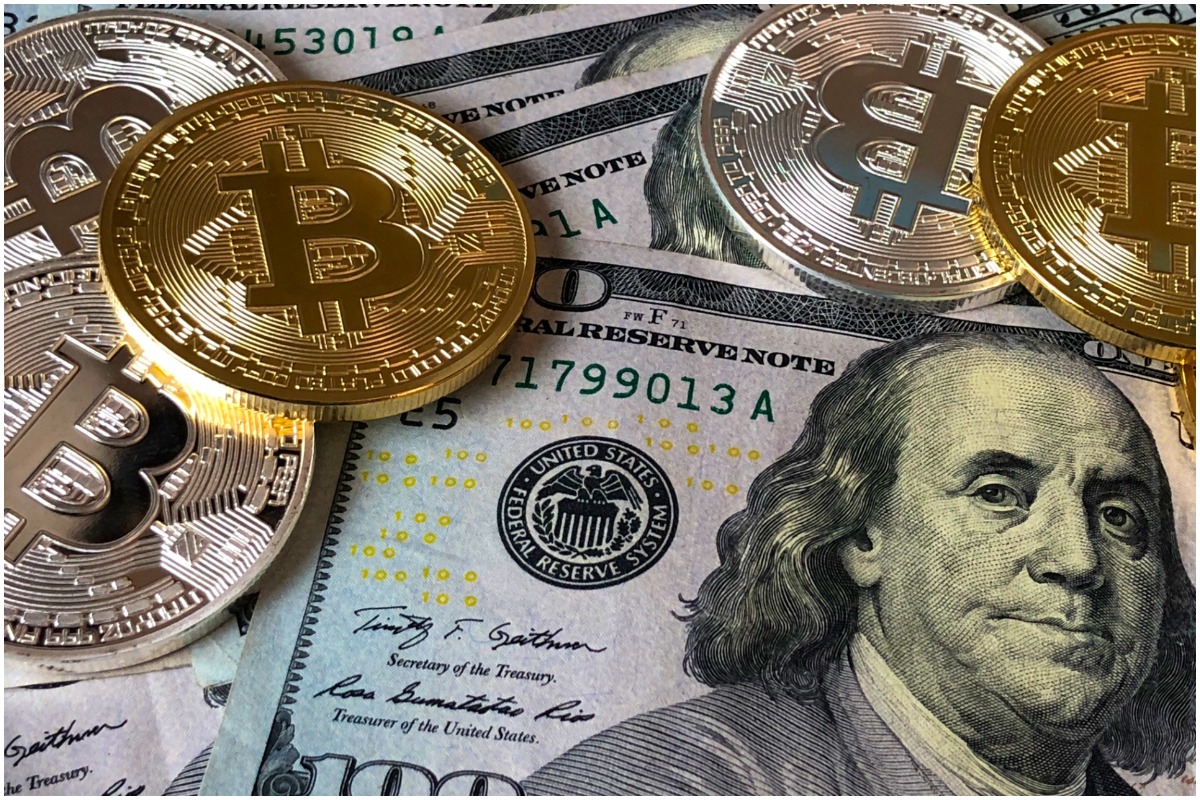From increased competition to low mortgage rates, the real estate market has undergone substantial changes in the past decade. One of the most significant changes is the payment method homeowners are using to purchase new homes. A recent Redfin report found that one in nine first-time homebuyers saved for their down payment by selling cryptocurrency or “crypto.”
A few years ago, saving for a down payment or buying a home with cryptocurrency would have been unthinkable, but today it’s possible. A growing number of private home sellers, real estate agents, and mortgage companies are accepting cryptocurrencies like Bitcoin as an alternative form of payment. So how can you buy a house with Bitcoin, and how can you determine if utilizing crypto to purchase your dream home is a good option for you? Here are some things to consider.

Can you buy a house with Bitcoin?
Yes, you can buy a house with Bitcoin and other cryptocurrencies, including Ethereum, Litecoin, and other digital assets. You can leverage these assets in many ways, like transferring crypto directly, qualifying for a mortgage, or converting holdings into cash.
1) Transfer crypto with a private seller
If you want to buy a home by simply transferring cryptocurrency, you first need to find a seller who’s willing to accept crypto as payment and is willing to accept the type of crypto you want to trade with. For example, a seller may accept Bitcoin for their home, but not Ethereum.
Make sure to have a conversation with the seller about the terms of exchange so that problems don’t arise in the future. Since transferring crypto has no paper trail, it’s crucial that you contact a legal professional to ensure proper paperwork and documentation about the purchase is created.
2) Use cryptocurrency holdings to qualify for a mortgage
The real estate market can be a complicated place, and the process of qualifying for a mortgage can be confusing at times. For any significant change to occur, the buy-in of major mortgage loan companies like Freddie Mac is required.
The good news for cryptocurrency holders is that Freddie Mac has clarified its position on the use of cryptocurrency in the mortgage qualification process. They have indicated that you can use Bitcoin to secure a mortgage loan under certain circumstances. Since using cryptocurrency in the real estate market is relatively new, Freddie Mac regularly updates their guidelines. Be sure to look at their latest bulletin for the most up-to-date information about using crypto to qualify for a mortgage.
Other mortgage lenders allow people to use their cryptocurrency holdings as collateral for their loans. If you plan to use your cryptocurrency holdings to secure a mortgage, you should first ensure you have all the paperwork to back up your claims and investments. To qualify for a Bitcoin-backed mortgage, you will need documentation showing the original purchase, as well as documented proof of sale.
3) Convert to cash
If you can’t find a seller who will accept Bitcoin and you don’t want to use crypto for a mortgage, you can still use cryptocurrency to buy a home by selling your holdings and converting it into cash.
Before you sell, you’ll need to thoroughly document every part of the process, from the original purchase of the “coin” to the eventual sale. If you fail to keep a valid paper trail, the bank or broker could refuse your mortgage application or flag the sale.
You’ll also need to make sure your transaction is conducted in U.S. dollars and report any profits to the IRS. In the United States, cryptocurrency is a capital asset, making it subject to the capital gains tax much like equity holdings.
If you plan to make any large cryptocurrency transactions, including selling Bitcoin to buy a home, finance your down payment, or qualify for a mortgage, consult both legal and tax professionals to ensure the purchase has proper documentation, all rules and regulations are followed, and all taxes are paid and filed properly.

Advantages and disadvantages of buying a house with Bitcoin
While buying a house with cryptocurrency is possible, there are many considerations to weigh when contemplating using Bitcoin, Ethereum, or Litecoin to pay for the home of your dreams.
Advantages
Potential savings
A home seller could potentially see more value in cryptocurrency than in cash. If this is the case, you could get a better price on a home if you’re paying in crypto. Using Bitcoin to pay for a home may also make your offer stand out and give you a better chance of getting a home compared to other cash offers.
Fast payments
Similar to using cash, buying a home upfront with crypto can accelerate real estate transactions by eliminating the traditional mortgage process. This means that people utilizing cryptocurrencies like Bitcoin can purchase their homes in a matter of minutes.
Diversification
One of the most significant advantages is diversification. Instead of holding the bulk of your assets in volatile cryptocurrencies, you get to branch out into the real estate market, which is historically more stable.
Disadvantages
Volatility
The volatility of the cryptocurrency market may cause hesitation, even if you currently have the funds to make the transaction happen. The price of cryptocurrencies can vary widely from day to day, making the amount of Bitcoin a home is worth challenging to determine.
Taxes
As mentioned earlier, when you sell cryptocurrency, it’s subject to taxes, and it’s easy to make a mistake when reporting profits and losses. If you make a mistake when reporting your cryptocurrency transactions to the IRS and you are suddenly using crypto funds to buy a home or make a down payment, the IRS or a tax agency may flag it.
Some companies may not work with crypto transactions
Since cryptocurrency is still relatively new, highly volatile, and essentially untraceable, many companies don’t conduct crypto transactions. It may be challenging to find a seller, mortgage lender, real estate agent, or bank that will work with or accept cryptocurrency as a form of payment.
Potential legal issues
Cryptocurrency prides itself on its security and ability to keep transactions anonymous. This may be useful on the blockchain, but when buying a home, anonymous transactions could lead to potential legal problems. Also, since crypto transactions are not reversible, getting your money back during any litigation disputes can be difficult or even near impossible.
Special Cases
Buying a home with Bitcoin can be difficult if your real estate deal has special conditions, such as lengthy inspections or unique seller/buyer contingencies.
Can you buy a house with Bitcoin? Final things to keep in mind
If you plan on using cryptocurrency in any capacity to help you buy a home, here are some final things to keep in mind:
- Paper work, paper work, and more paper work: Make sure to have reliable documentation during every step of the transaction process to protect yourself and the seller.
- Taxes: Along with the capital assets tax, there are many taxes and fees you’ll have to pay when buying a house with cryptocurrency. Make sure to account for real estate commissions, county taxes, recording fees, etc.
- Digital wallet: Some banks and credit card companies have banned the use of transactions involving cryptocurrencies. Because of this, you may only be able to initiate a crypto transaction via your digital wallet. Make sure to check with your financial institution or advisor for their specific guidelines and policies regarding digital wallet transactions.
Redfin does not provide legal, tax, or financial advice. This article is for informational purposes only and is not a substitute for professional advice from a licensed attorney, tax professional, or financial advisor.
The post Real Estate and Cryptocurrency: Can You Buy a House with Bitcoin? appeared first on Redfin | Real Estate Tips for Home Buying, Selling & More.



